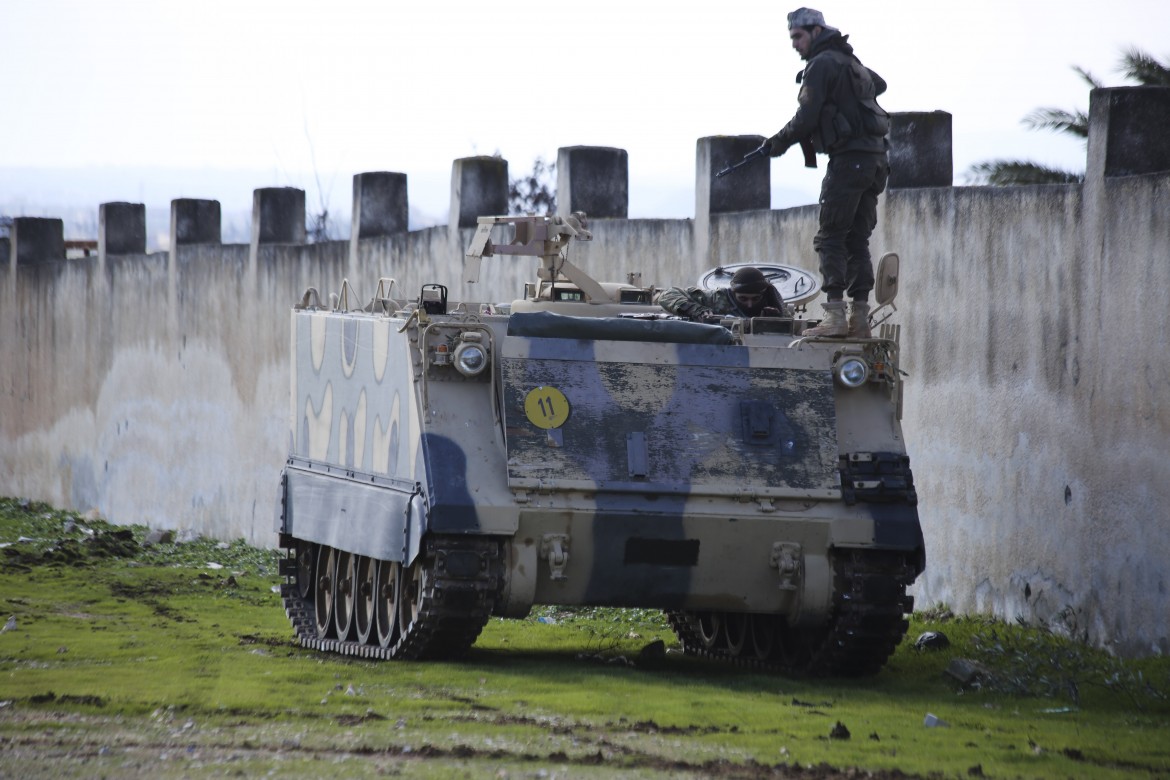Analysis
After abandoning Kurds in Syria, US declares Idlib must remain in Turkish hands
In the US-Turkey-Russia triangle vying for the division of zones of influence, it seems that Washington has decided on a wedge tactic, inserting itself into the increasingly visible cracks in the dialogue between Moscow and Ankara.

Idlib must not fall: this time, the Americans agree with Erdogan, more explicitly than ever before. James Jeffrey, the US Special Representative for Syria Engagement, said on the Turkish TV station NTV that “the United States totally agrees with Turkey on the legal presence and justification for Turkey defending its existential interests,” and that “NATO has been helpful to Turkey and it’s still helpful to Turkey.”
In the US-Turkey-Russia triangle vying for the division of zones of influence, it seems that Washington has decided on a wedge tactic, inserting itself into the increasingly visible cracks in the dialogue between Moscow and Ankara, on which the fate of a vast strategic arc that goes from Syria to Libya seemed to depend.
The American move should be read as an anti-Russian one, but most of all as an anti-Iranian one, the historical ally of Assad, and which, after the killing of General Qassem Soleimani in Iraq by the US and the advance of the Syrian army into the country’s north, is strengthening its presence in support of the Syrian Baathist regime.
Idlib could be the stage of the last great battle of the Syrian nightmare—or the first one in a wider conflict that would pit Turkey against Assad, and thus also Moscow and Tehran, reverberating from the Middle East to Libya and beyond. The United States, already present with its troops, is now returning to the heart of the Syrian game after the disastrous withdrawal from Rojava in October, ostensibly to support Turkey, which has been playing its cards recklessly in recent years.
First Turkey supported the revolt against Assad by the Muslim Brotherhood and the jihadists, and then, when it was time to choose between Moscow and the West, it strengthened its ties with the Russians—both in terms of weapons (S-400), economy (Turkstream) and diplomacy (Astana)—then mounting military interventions with three major operations against the Kurds (in August 2016, January 2018 and October 2019). And, finally, Erdogan maneuvered the Syrian jihadists into the region bordering Libya.
Idlib is not only the epicenter of a battle, but also that of a major humanitarian crisis that includes large population movements in and out of Syria and different types of ethnic cleansing involving both sides fighting in the war.
This is, after all, the ultimate objective of the Syrian conflict: a demographic reshuffle in which Turkey wants to replace the Syrian Kurds in the territories torn off from Rojava with Sunni Arabs, while Assad wants to reduce the proportion of the majority Sunni population that triggered the 2011 revolt.
Erdogan currently “hosts” 3.5 million Syrian refugees, and his idea, presented to Trump but also to the European Union, is to relocate one million Arab refugees inside the Syrian border, who should replace the Kurds. Among them are also jihadists armed by Ankara.
Chancellor Merkel has already agreed to Erdogan’s request to co-finance the building of 10,000 homes, and no one in Europe has said a word in protest. This is as far as Europe’s solidarity with the Syrian Kurds goes, the main allies in the fight against ISIS, after Europe had promised to impose sanctions on Ankara after the massacre committed by the Turks in Rojava.
While all these developments were taking place, Turkey was also moving around 2,000 jihadists from Syria to Libya to support Tripoli against General Haftar, who is supported by Moscow. This is why the agreements on the truce in Libya are frail ones, even though they have just been sanctioned by the UN Security Council, with Moscow’s abstention.
Before the war, a million people lived in the Idlib province; now there are more than three million people there, with 600,000 refugees amassed in camps and improvised tent towns. During the last three years of the war, Syrians from all parts of the country ended up in this province, and Idlib also became the stronghold of the former Al-Nusra Front, affiliated with Al Qaeda, along with the other rebel groups who are doing Erdogan’s bidding.
So far, the intricate web of interests between Putin and Erdogan was holding up, after Moscow and Ankara had arrived at the brink of conflict in the autumn of 2015 over the shooting down of a Sukhoi fighter. In order to keep Assad in power, Russia came to an agreement with Turkey, and for over two years this strange alliance managed to work, even after it was put to the test by the American withdrawal from North Syria that left the Turks free to massacre the Syrian Kurds. Then, Russia intervened together with the Syrian troops to contain the Turkish advance in Rojava by limiting the extent of the “safe zone” controlled by Ankara.
A few days ago, the clashes between Turkish and Syrian troops rose to a new level.
Putin is furious at the fact that Erdogan is not respecting the agreements on the evacuation of rebels and jihadists from Idlib and the reopening of the highways connecting Damascus to Aleppo and the coastal area. On the contrary, Turkey has sent troops and supplies into the area in recent weeks.
Ankara is angry because Syrian troops are targeting not only the rebels, but also Turkish soldiers. In consequence, the Americans have now moved to Erdogan’s corner—who gave Trump the intel to eliminate Al-Baghadi in exchange for Rojava—which also makes them bedfellows with the Al-Qaida allies in Idlib, flying in the face of the “war on terrorism” and the alliance with the Syrian Kurds who have fought against both ISIS and the jihadists.
Originally published at https://ilmanifesto.it/idlib-non-deve-cadere-al-via-la-cacciata-dei-curdi/ on 2020-02-14
